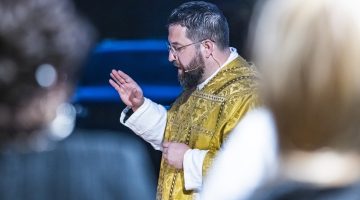My approach to politics and economics is more like medicine than mathematics. In mathematics, problems are solved by clear formulas that have a kind of consistency due to them being abstracted from particulars. One is a kind of metaphysical concept that does not directly align with “one” thing in the world. For example, what does it mean to be one person. The concept is not difficult to grasp. A person, any person, has a clear identity as an individual substance of a rational nature, but yet any one person is not strictly singular in the most essential sense.
A person is composed of parts. In fact, a person has various other microorganisms living within them, so to say a person is one is a kind of approximation. The concept of one works in dealing with reality but it’s immediate connection with particulars is bridged by a network of associations that are not absolutely certain. This is the fundamental relationship between theory and particulars and in fact language and particulars.
To say that theory and the world of concepts has nothing to do with concrete action and the world of particulars is silly and the fantasy of clever undergraduate students who discover philosophy for the first time. But to move from theory to practice is not a matter of absolute accuracy but is more subtle art.
Concepts, theories, philosophy, theology, ideology… whatever term that is used to denote the abstraction is the primary means by which we organize and make meaning of reality. Without theoretical training in which we develop linguistic maps of meaning, we run the risk of having no consistent ethics nor any consistent moral compass. The havoc that is created by a mind that is inconsistent leads to all manner of unnecessary destruction and conflict.
And yet, there is no ideal system or structure that can be imposed on the political and economic order, nor has the attempt to impose a rationalist system ever truly worked. Communist countries were never pure in their political and economic ecosystems. Black markets exists, humans form micro economies and undermine the ideological purity of the ruling class. Take for example prisons. Technically currencies are not allowed to be traded and exchanged for goods and services, and yet prisoners undermine the ideal imposition by creating their own currencies out of stamps and cigarettes. Like the dollar, these currencies have a real world value not created by a central authority, but which emerges from a hidden market.
While theoretical training is necessary, when it comes to affecting change in society, the key is not to impose an ideal onto the network of relations. Instead of the imposition of the ideal, political and economic systems either flourish or decline through interventions which are more like medicine. Medicine does not create the health of the body, but rather seeks to weed out viruses and other forms of illness. The health of the body involves the balanced cooperation between the parts, and political and economic balance works in an analogous way.
There never exists a pure system such as capitalism or communism. The system that actually exists involves interconnected ideologies, philosophies, and theologies which may cooperate or be in conflict. In better situations, the conflicts balance each other out. In cases of extremes, the conflicting viewpoints disrupt flourishing.












No Comment